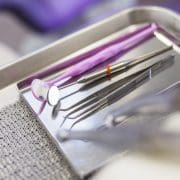When Do You Need a Deep Teeth Cleaning?
Deep cleaning of your teeth, when you first hear about it, sounds like it could hurt. But, it is something that usually needs to be done if you have missed a few trips to your dentist. Of course, it can be done entirely pain-free.
It is usually a specific treatment conducted by your favorite dental hygienist as she treats your gums or periodontal disease.
When is a deep cleaning required?
No matter what you experience everyone builds up some type of plaque, but you need to know that a deep clean is not always the right answer for anyone. Use deep cleanings in the following situations:
- Deep Pockets: If there is more than 4 mm between your gums and tooth.
- Not kept up professional cleanings: If you haven’t been keeping up a dedicated dental regime of dedicated, regular professional cleaning at least twice each year.
The differences between deep cleaning and regular teeth cleaning?
To have your teeth regularly cleaned is designed for the reason of maintaining healthy gums. Healthy gums have shallow, small spaces between gums and teeth. Getting regular cleanings is recommended for the patients that have good oral health already and are not suffering from any bone loss, gum recession, bleeding gums, or infection.
Regular cleaning is designed for the maintenance of healthy gums. Healthy gums have small, shallow spaces between the teeth and gums. Regular cleanings are recommended for patients who generally have good oral health and do not suffer from bone loss, bleeding gums, gum recession, or infection.
Getting a deep cleaning is needed if you notice that your gums start to bleed when you are flossing. It means that your gums have already become irritated and the pockets have probably gotten deeper than 3 mm. If you start to notice you have these symptoms, see your dentist as soon as you can because you might have gingivitis or inflammation. If you have mild gum disease and do not have it treated, it can cause more severe ailments to develop like periodontitis along with other health issues.
What does a deep clean entail?
- Scaling: Scaling involves removing plaque and tartar from the surface of the teeth and the pocket area between the teeth and gums
- Root planning: Your hygienist will use a scaling instrument to remove plaque and tartar from the surface of the roots of your teeth.
What happens if you don’t get a deep dental cleaning?
If you are noticing sensitivity, bleeding gums or inflammation, it’s crucial that you find a dentist in your area to check your gums and do a thorough examination before things get worse. Your dentist will probably recommend a deep cleaning if the space between your tooth and gum (called a pocket) is more than four millimeters deep. An infected tooth is not only a risk to your smile; oral infections can lead to abscesses, heart disease, or much worse.
Treatment and aftercare:
Once the food particles and plaque have been cleaned out, your gums will start to heal themselves and can re-form a tight seal around your teeth. The process will take six to eight weeks. If you have been selected as a candidate that needs deep cleaning, make sure you know how to keep healthy gums after having the procedure. Periodontitis is irreversible and causes bone loss making it much easier for the plaque to get back up under your gums to cause more inflammation.
If you need any of our services in this realm, feel free to visit any of our locations and speak to any of our team. We will help you in any way we can.






